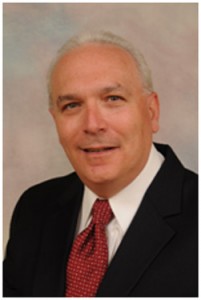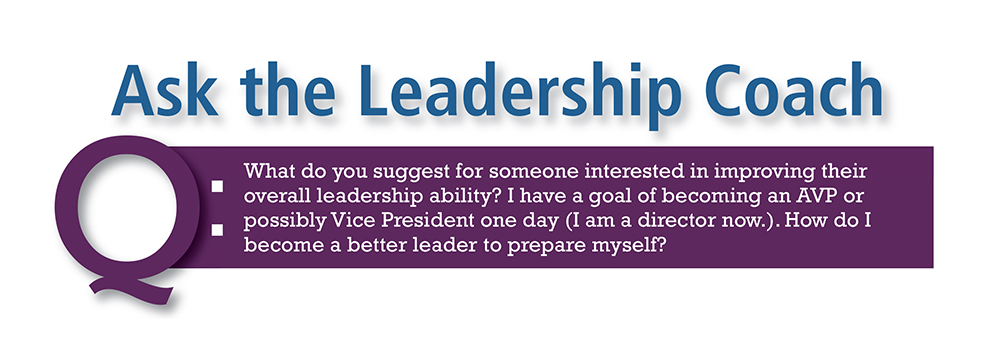Find out how you’re doing. I mean, truly, find out how you’re doing. I think most successful leaders are very good at learning and understanding their own strengths and weaknesses. The less successful leaders either don’t know, don’task, or don’t learn from information about themselves when they receive it. Their lack of self-awareness holds them and their teams back. For example, a leader may have been told twice that he or she is ‘good with people,’ and that has translated to a never ending effort to please everyone. Other leaders may believe that they are analytical, in control,and havea mind for operational details, and this translates to a theme park micromanagement ride. The less successful leaders either never start to learn about themselves, or they prematurely stop out of fear.
The good leaders know how they show up in leadership. How do you find out how you are doing? You may be the rare individual who has a boss who dutifully and candidly does performance reviews. Hopefully, those reviews speak in specific terms about interpersonal skillsand leadership ability, and do not just cover how you implemented a new policy, or procedure, or business system, or simply pat you on the back with a “you’re doinga nicejob”commentand a promiseto talk again next year. Few senior leaders focus on their employees’ developmental growth, and, even if you work with that special boss who does, what you learn in a per-
formance review is her or his opinion and judgment only.
Consider getting a 360 degree assessment working with a coach to find out how you are doing. These ssessments are separate and distinct from performance evaluations annual compensation reviews — they belong to the person being assessed (not the boss or theinstitution, though many institutions support the costs as part of professional development or HR budgets). They typically lead to professional development plans that can help an emerging, or veteran, leader reflectand refocus. Professional development planning does influence achievement ofgoalsand tasks — the stuff of performance reviews.
For instance, the 360 tool that I work with is data-driven, feedback is anonymous, and it helps leaders identify patterns, and choose 2-3 behaviors or practices to either start doing or stop doing. The reasons for change become clear to a leader, as she or he can see how certain prac-
tices or behaviors impact their success both in achieving goals and in developing relationships that fuel organizational success. I find those discussions around 360 tools to be the most enjoyable and impactful in my coaching work. Most coaches do!
The best 360 assessments ask for 8-10 (or more) raters who provide both numerical ratings and written comments. These individuals should experience you in leadership, from various organizational levels. Behaviors and practices relate to how you show up in leadership, your authenticity and integrity, strategic focus, sense and respect for the organizational
system, and how you relate and care for others on your leadership team (staff, peers, boss,etc.). These assessments are more comprehensive than a personality or stylesurvey becausethe 360’s speak to specific leadership behaviors and actions.
The results of a 360 assessment can provide useful insights. You can learn how you assess yourself versus how others assess you, how you appear to peers and staff versus to your boss. I have learned from each 360 assessment of me, and have found that others I have asked to assess me have respected my interest in my own professional development.
(You mention that you are seeking promotional opportunities:
Having served on several higher education executive search committees, I’ve seen many questions to candidates that look for candidate leadership self-awareness. The 360 experience is a positive example to cite.) Yes, it’sscaryto facecertain information,so, I don’t want to overstate what a 360 assessment is: it is not thesole universal TRUTH about you and all that you are and do. It’s simply an organized collection of impressions and observations about how others experience you in leadership.
Working with a coach, we look for trends and patterns in 360 data and comments. We ask what rings true. What are we surprised about, if anything? What is gratifying to see? We ask what have we, perhaps, been hiding from ourselves? Weask what is possibleto change and does it make sense to try to do so, for what purpose, and how do we go about it? It’s a way, also, to validate the excellent leadership skills one already demonstrates. The positive news can be very energizing and affirming! The challenging news can spur one to action and self-improvement with the support of coaching.
The best leaders know about themselvesand takethetimeto learn what others think of them in leadership. The 360 isa tool to launch a learning conversation. It is to help leaders guide and inspire others, to serve their institutions, and to get better at leadership. It starts with self-awareness and how weconnect with others. In my opinion, that defines a leadership journey.
 Garry Sanders is an executive coach and graduate of Georgetown University’s Certificate Program in Leadership Coaching. Garry is a long-time research administrator and recipient of NCURA’s Distinguished Service Award. He can be reached at gsanders@assistleadership.com and (518) 588-0992.
Garry Sanders is an executive coach and graduate of Georgetown University’s Certificate Program in Leadership Coaching. Garry is a long-time research administrator and recipient of NCURA’s Distinguished Service Award. He can be reached at gsanders@assistleadership.com and (518) 588-0992.

